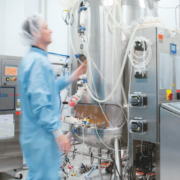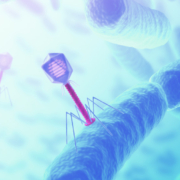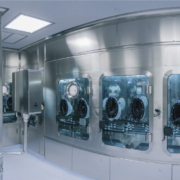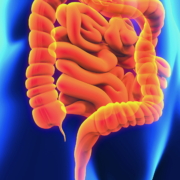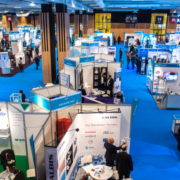Celonic AG has pursued an ambitious expansion strategy in mammalian cell line contract manufacturing to establish Phase III and commercial supply by mid-2019. A new GMP facility in Heidelberg was acquired, and capacity is also being expanded at the headquarters in Basel. European Biotechnology spoke with Franzpeter Bracht, COO of Celonic, about Celonic’s strategy.
ADVERTISEMENT
Despite seemingly insurmountable environmental challenges ahead and the many successes’ flaunted by big biorefinery projects, the wider business community remains stubbornly sceptical about developing business within the bio-based paradigm. Now policymakers are pushing financiers to take a bigger stake in its success. New efforts are underway to drive private investment in bioeconomy ventures.
The rapid development of antibiotic resistance has become a major public health issue that could soon kill 10 million people annually. One promising alternative to ineffective antibiotics has been around for almost a century – bacteriophages. The microbe-killing viruses are used in medicine in Georgia, Poland and Russia, but have been neglected by western doctors. Now pressure is mounting on global health authorities to put the option back on the table.
Americans and Europeans love fast food, even though doctors are now more certain than ever that the highly processed meals that go hand-in-hand with a hectic Western lifestyle are not a smart health choice. The latest findings suggest that fa(s)t food imprint key genes in the innate immune system, possibly causing the permanent immunological hypersensivity that is at the root of diabetes, atherosclerosis and other common diseases of civilisation.
Poor aseptic practices can rapidly ruin market supply of products outsourced for production. This year, Celltrion came under fire from FDA inspectors. At the end of January, the producer received a warning letter affecting the production of Inflectra biosimilar infliximab-dyyb (CT- P13) co-marketed with Pfizer. In mid-February, the FDA added a warning concerning rituximab and trastuzumab biosimilars produced for Teva, as well as for its fast-track migraine mAb fremanezumab.
Rutger Oudejans, Brand Director at bioLIVE, postulates that the bio supply chain could learn some lessons from the small molecules sector. The bio industry continues to expand at rates above the traditional NCE (New Chemical Entity) sector, yet for the supply chain there are vital synergies that could help further accelerate developments.
While bio-based polymers have been a hot topic for some years now, it’s grown increasingly clear that where plastics end up is at least as important as how they’re made. Current recycling technologies are limited, bringing either low-quality recyclates or high processing costs. But enzymes now offer a glimmer of hope. Working with the common plastic PET, a French firm is trying to prove biotech approaches can close the loop in the material’s life cycle. They hope they’ll soon be able to recycle the plastic endlessly and affordably.
At the 11th Berlin Conference, Novo Holdings outlined details of a new €135m investment fund launched to push the development of new drug classes urgently needed to fight antimicrobial resistance. European Biotechnology editors were the first to talk with Aleks Engel, Partner at Novo Holdings, and George Griffin, Chair of the Repair Impact Fund’s Scientific Advisory Board, about the construction and the goal of the fund.
The adage you are what you eat’ is more than folk wisdom. Evidence that the food you ingest has a major impact on your health grows by the day. It’s now clear the bacteria that colonise the skin and gut from birth on are key sensors for environmental triggers in chronic diseases of civilisation. Ever since research showed that restoring microbiome balance cures 90% of all Clostridium difficile infections, food manufacturers, pharma companies and independent teams have been tracking it in other indications – including multiple sclerosis.
Personalised medicines, intelligent packaging and FDA deadlines seen as major trends for pharma packaging in 2018.


